The content of the article
The car has long ceased to be a luxury item and an indicator of the family’s material security, and now, according to polls and approximate calculations by sociologists based on sales data of new and supported cars, every third resident of the city owns the car.
However, there is a special category of people for whom the task of getting behind the wheel seems impossible, and leaving at rush hour to get food or work is a sign of genuine heroism. Such thoughts are usually associated with the fears of watching videos of various accidents, seen during practical training in a driving school of drivers, clearly violating the speed limit on a short distance of the road (in other words, “busters”), or with self-doubt.
Every driver passes through similar psychological problems, even an experienced one.It often happens that many people who have already graduated from a driving school, 2-3 months after an active drive on the roads in their own car, simply be afraid to go out yet, so as not to put their own life overly at risk, preferring public transport to the car. In order to figure out exactly how to overcome the fears of such a plan, it is necessary to understand the thoughts from which they are formed.
Causes of panic
Psychologists identify several causes of the fear of driving a car, each of which must be analyzed in detail:
- Fear of losing control of the car at some critical moment;
- Fear of being involved in a traffic accident either through your own fault or not;
- As a result - damage someone else's car, property, bring down a person, etc .;
- Finally, fear of endangering loved ones or relatives.
Important: do not confuse fear with panic. There was nothing to do for the alarmists behind the wheel of a car - they talk about this even in a driving school. Feeling fear, a person can control all his emotions and “feel” the situation on the road.
To answer the question of exactly how to overcome the fear of driving a car, you should focus on each type of it.
Overcoming fear
Fear of losing control over the car is more inherent to beginners, especially girls. This is mainly due to the lack of understanding of the principles of operation of the machine and its presentation as a kind of "beast", which seems to work by itself. Often, such thoughts lead to the appearance of the feeling that a car is a kind of living organism acting on its own. To overcome this feeling is quite simple: you only need to practice more when driving on the road in the least busy hours of the day, for example, early in the morning on weekends.All that is needed to gain a sense of control over the car is a training ground, even an improvised one, which will hone the classic driving skills and let you feel the reaction of the car to one or another action.
Advice: since there is a free training ground in almost any city, then it is on it that the driving gaps should be filled (for example, to train to get under way on a hill).
The fear of getting into an accident subconsciously must be present for any driver, and this feeling best plays the role of additional insurance. Feelings of complacency, excessive self-reliance appear among drivers who left a little more than a year and a half and did not fall into any significant trouble. People often argue this way: if they, beginners, are so good at leaving for so much time, now it is possible to go a little faster and make some kind of maneuver "on the patch". It was during this period that many people were burned, falling into serious accidents.
It is important to repeat: such fear should not flow into the alarmist feelings. If in any unusual situation on the road,I want to sharply pull the steering wheel to the side - a person needs to talk with himself, because such behavior on the road is unacceptable.
Fear of suffering serious material losses is inherent, mainly, to people who have low wages, because the personal car was probably deposited money for a long period of time, and it is needed not only for everyday needs, but also for some economic ones. This fear is very easy to overcome - you should only move along the road, observing all established rules of the road and, especially, speed limit. Its presence is precisely designed to save the country's roads from serious accidents involving serious material losses to the parties: if you move around the city at an average speed of 50 km / h, it is quite problematic to get into a major accident due to your own fault. Otherwise, the cost of car repairs will always be covered by insurance and payments from the guilty.
The fear of harming close people is a completely natural feeling that must also be present in every person. Moreover, his presence is a silent witness tothat the person behind the wheel is fully aware of the responsibility entrusted to him for the health of relatives, friends and other people sitting in the passenger seat.
Tip: slightly reduce the fear of such a plan can help purchase a car with the maximum number of airbags, as well as the request of all persons in the car to buckle up. According to statistics, the number of people who have been fastened and who have suffered serious injuries in an accident, tends to a minimum in comparison with those not fastened.
Tips from psychologists and experienced drivers
Above, typical fears of newcomers to driving a car were disassembled, which will help the driver to psychologically adjust himself to the desired “wave” and calmly control the car in traffic. However, it is not a secret to anyone that sometimes critical situations arise on the roadway, when it is necessary to act quickly, relying only on one’s reaction and even instincts acquired during practical exercises.
The secret, in the opinion of psychologists, of a “cold” head, of prudence in any, even emergency, situation is in proper breathing: the driver must always breathe rhythmically, deeply and, importantly, slowly, in no way abruptly.A willpower aimed at calming the breath will quickly bring the disturbed emotional state back to normal.
Advice: when someone flies straight to meet, a car cuts off to the side or some pedestrian decided to quickly cross the road, you can’t drive the wheel in any way, you need to trust some one solution in order to clearly show your intentions to others.
Both psychologists and drivers especially pay attention of beginners to the fact that they should always keep both hands on the steering wheel, not close their eyes from the fear of one of them, or not show their unique abilities to others in typing a message with one hand. Both hands on the wheel, eyes aimed at the road - is the basis of safe driving.
If a person feels that for some reason he is morally tired, annoyed, etc. - should calm down, but only after that to go. The history of the accident knows enough cases when newcomers, saddened by some events, forgetting all their fears, solve problems with speed, getting a dose of adrenaline.
Respiratory-muscular autoregulation, which is a complex of simple exercises, can help to revive yourself:
- To begin with, it should be as comfortable as possible to sit in a car seat, completely “surrendering” to the back of the seat, and then take a few deep breaths.
- After that, it is necessary to relax the muscles, turning the head consistently in all directions, stretching the hands and turning the arms in the elbow.
- In conclusion, it is elementary to amuse yourself by putting a grimace in the rearview mirror and recalling pleasant life events.
- Going on a journey with the understanding that a fast, sloppy ride can cause harm to people who are completely not guilty of personal problems.
This technique is recommended to use not only to people who want to bring themselves to life, but also to everyone who for some reason is afraid to get behind the wheel of a car. These simple exercises are capable of giving the necessary feelings of calm and self-reliance.
In conclusion: practice, calm and attentiveness are the three cornerstones of overcoming the fear of driving. Adhering to the described theses, any newcomer will be able to bring seemingly complex actions to automatism and receive only driving pleasure.
Video: 10 Tips to Overcome Fear of Driving




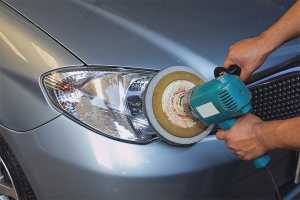

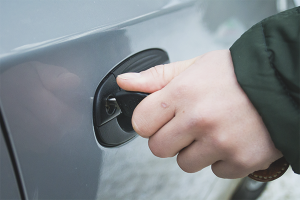
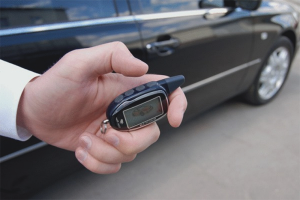
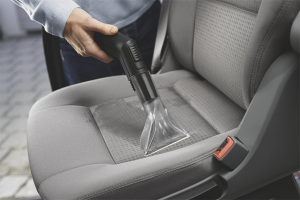


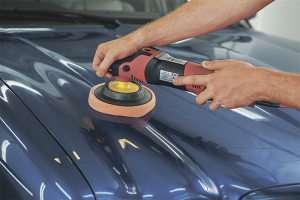
To send